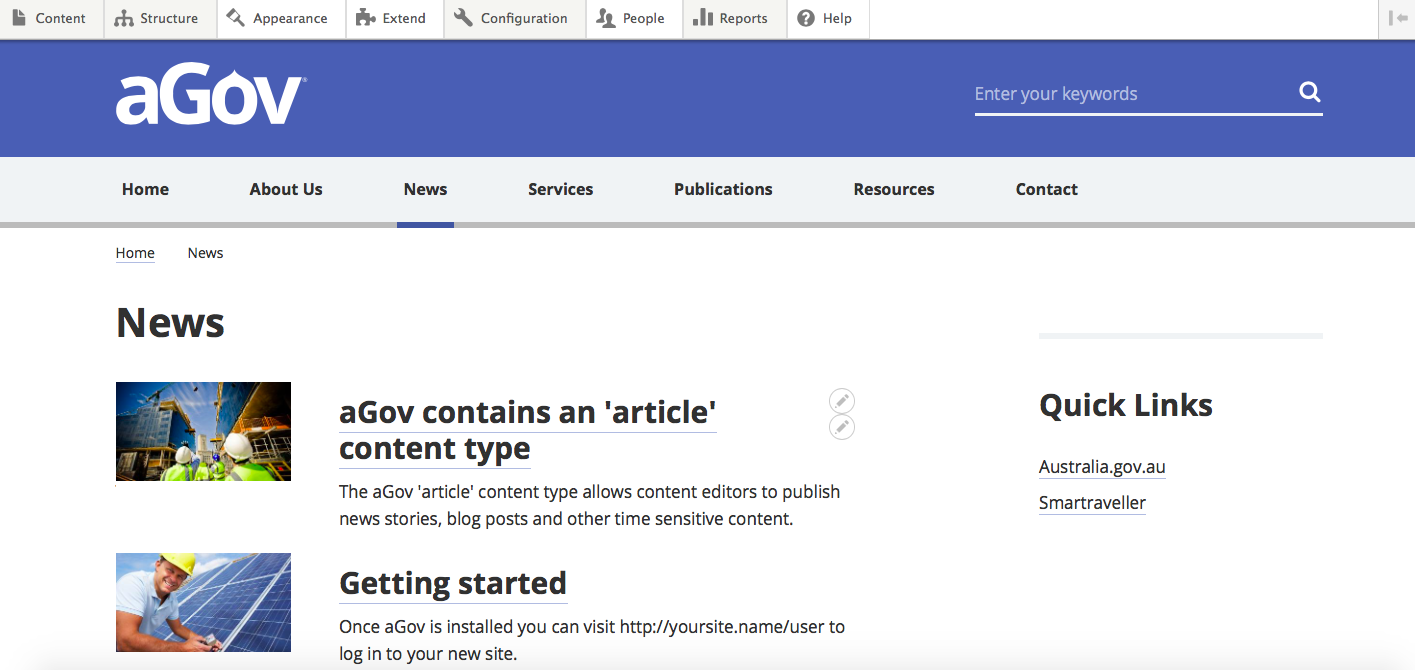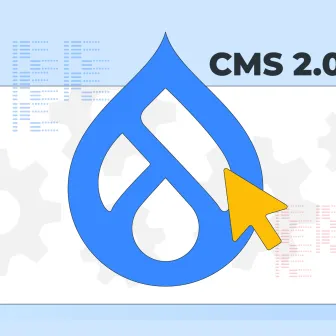What is aGov?
aGov is ideal for any federal, state or local government agency wanting to move their websites quickly and easily to Drupal whilst retaining full control of their codebase and choice of hosting provider. Agov has been adopted by many government bodies across the globe and is continuously proving to be very cost and resource effective.
Why choose aGov?
There happen to be a lot of substantial reasons for governments to prefer aGov over the traditional development cycle. From providing an appealing user experience to editing workflows, its everything under one roof. Let’s get into how beneficial can aGov be for you?
Suitable for any hosting platform
aGov is installable in under 10 mins on any windows or linux hosting platform. The licensing and hosting costs are far too below than the other CMS platform's.
File management
Managing files within a Government website CMS - such as photos, videos, and documents - can become overwhelming as those assets grow in numbers. Drupal 8 saves time on asset management, giving you a searchable library where you can upload and re-use files anywhere on your website.
SEO Capabilities
Government websites need to be a click away. Raking well in the search engine results position is not an overnight thing. aGov’s out of the box search functionality includes an ultimate keyword search powered by Drupal’s inbuilt search engine. Even you can integrate any search engine - including Elasticsearch, Apache Solr, Google Search Appliance and Funnelback Search.
Because aGov is a complete package, your Government web development team will be able to decide exactly what to list on the XML sitemap and to sync this with Google Webmaster Tools. This provides enhanced search results and search engine optimisation.
Drupal 8 gives you the power to categorise and label your content. Tagging means any web system anywhere can exchange and make use of your content. Powered by Drupal’s sophisticated Taxonomy module, you can define and manage content categorisation to the finest level.
Monitoring Benefits
Synchronisation with google analytics is an out of the box feature of aGov. You can avail a deep analysis of your website's performance, visitor behavior, time spent by visitors. Decision making becomes easier when you have the facts handy.
aGov gives you full ocntrol over displaying and editing the necessary content. Configuration is so well built, that you can easily restructure the navigation within a matter of clicks.
Twitter feeds
An in-built configuration for integrating the official twitter accounts of governments into the home page.
WCAG 2.0 Level AA compliance, independently audited by Media Access Australia
Accessibility Guidelines (WCAG) 2.0 has helpful recommendations for making Web content more accessible. Following these guidelines will make content accessible to a wider range of people with disabilities, including blindness and low vision, deafness and hearing loss, learning disabilities, cognitive limitations, limited movement, speech disabilities, photosensitivity and combinations of these. Following these guidelines will also often make your Web content more usable to users in general.
AGLS Metatag
The meta tag module automatically provides structured metadata for different sections/landing pages of the websites. It provides you associated suggestions to ensure industry standard visibility, accessibility, and information with respect to the URL.
Editor workflows
You won’t need to worry about setting up your own systems for content version control and keeping track of updates on your website. With aGov you simply use Drupal 8’s inbuilt management console to select who has what level of access and then define your own workflows.
This default workflow includes the moderation of drafts, the ability to review, publish and unpublish, as well as tailor settings for the content types. aGov also saves retrievable content from all previous versions of each page and content can be scheduled to be published and/or unpublished on specific dates.
Responsive design
The websites based on the aGov are inherently responsive. The elements can further be configured as per the requirements by the stakeholders.
Theme framework
It is essential to have proper theming on a government website. You can brand your website by modifying the starter theme with some easy-to-make and quick CSS changes.
WYSIWYG editor with media library
Formatting landing page's content is made easy with aGov’s rich content editor. Using WYSIWYG (What You See Is What You Get) formatting, you can insert images and videos, choose your font styles, and for ultimate ease of use - cut and paste directly from Microsoft Word without facing any formatting mishaps.
Common content types
News, Events, Publications, Blogs - Some useful content types are indispensable for any federal's website and so they are present by default to eliminate extra development hours. A few examples are:
News
A section is allocated for news and region-wide announcements. It is editor-friendly and updates can be aired very easily by admins.
Publications
Affiliated publications can be uploaded and showcased on a dedicated section or landing page as per preference.
Blogs
A platform where the government gets to speak and engage with the public on different aspects.
Events
An explicitly highlighted section on the homepage dedicated to events. With the already defined event content type, it will be easier to update and manage the events on aGov.
Social media integration
Out-of-the-box social media integration which enables governments to link their social handles to the website.

For building official websites with functionalities which a government should have, we always prefer the aGov distribution and then make enhancements to it as per client requirements. It reduces the usual development costs and time as per industry standards.
We are always here to help you with your official websites, just drop us a word at [email protected] and we will reach you shortly.
Subscribe
Related Blogs
Drupal's Role as an MCP Server: A Practical Guide for Developers

"The MCP provides a universal open standard that allows AI models to access real-world data sources securely without custom…
What’s New in Drupal CMS 2.0: A Complete Overview

"Drupal CMS 2.0 marks a significant change in the construction of Drupal websites, integrating visual site building, AI…
Drupal AI Ecosystem Part 6: ECA Module & Its Integration with AI

Modern Drupal sites demand automation, consistency, and predictable workflows. With Drupal’s ECA module, these capabilities…




